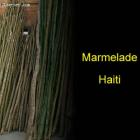ADVERTISEMENT
Credit - Haiti Observer Blog
Credit, Haiti Observer Blog. Read the following articles about Credit
Haiti's Informal Sector Needs More Micro-Lending Programs
President Martelly met with 54 business associations to seek solutions to informal sector challenges. The central need for small and mid-size enterprises (SMEs) is for credit at favorable interest rates.
Also present were ministers of Women's Affairs, Economy and Finance, and Crop Production, along with custom officials and Central Bank's CEO.
The Haiti informal sector is a non-aggregated group, and they account for 80% of the workforce. Underdeveloped SMEs have been ignored until the 2010 earthquake forced the issue of growing the economy.
The government of Haiti (GOH) has developed an agenda for SMEs, some of which includes:
The History of Bank of the Republic of Haiti (Banque de la Republique d'Haiti)
The Bank of the Republic of Haiti (known in French as Banque de la République d'Haiti) (BRH) serves as the main bank of Haiti. As a participant in the Alliance for Financial Inclusion, it promotes its own proprietary financial inclusion initiative.
Soon after Haiti drove the French off the island, it reclaimed its status as a sovereign state. First mention of BRH occurred in a brief exchange of letters in September 1825. A German corporation, Hermann Hendrick and Co. (HHC), wanted to start a bank in newly-freed Haiti. They hired George Clark to draft a proposal, which was reviewed by Nicholas Kane, foreign liaison between HHC and Balthazar Inginac, Haiti Secretary of State. The proposal was rejected and Haiti's first bank would wait decades to become established.
Privately-Held Banque de l'Union Haitienne a Haiti Success Story
Banque de l'Union Haitienne (BUH), Haiti's first privately-held bank, with a full range of banking services, was established in 1973. Clifford Brandt, a Haitian corporate businessperson, partnered with Banco Popular Dominicano of the Dominican Republic (BPDDR) to create the bank. He and BPDDR's president, Alejandro Grullon, met to begin the process for launching Haiti's first private bank in 1973. With Grullon's approval, a pre-planning committee was set up to incorporate BPDDR's rules and regulations in order to be in conformance with its holding company.
In a meeting on June 2, 1973, 420 shareholders voted for the creation of BUH. Also at this gathering, it planned its regulatory structure, and selected a nine-member Board of Directors and a Controller.
Payment By Credit Cards To Be done In Haitian Gourde
From 3rd January Payment By Credit Cards To Be Made In Gourdes In Haiti As Per The Bank Of The Republic Circular
The Bank of the Republic of Haiti sent out a circular to credit card companies and banks, late November informing them that all operations in Haiti territory paid by credit card will be in gourdes, exclusively, regardless of the place the credit card is issued. The circular has been issued in accordance with the 14th May 2012, Act, paragraph 5 of Article 83 of financial institutions and banks. Procedures for credit card billing transactions are determined by the circular. On 3rd January 2013, provisions of the circular will be enforced.
Modern Slavery Persists in Debt Bondage
Debt bondage occurs when a person is forced into debt, or voluntarily commits themselves as a form of collateral to pay off a debt.
The punitive nature of the system undervalues work performed and undercredits the debt being paid down. Circumstances of debt bondage are uncertain as to scope of tasks performed and duration of labor. As a result little progress is made towards paying down the debt. It can often turn into an intergenerational debt burden.
The United Nations officially considers debt bondage as a type of "modern day slavery". Since the mid-fifties, it has been legally banned by article 1(a) of the United Nations 1956 Supplementary Convention on the Abolition of Slavery. But nonetheless, it continues unabated in underdeveloped countries, such as South Asia and the Caribbean. In these places, no infrastructure exists to declare bankruptcy or be protected by consumer protection laws. Small- or mid-size businesses can't get approved for credit because they own no land titles or liquidity assets as forms of collateral.
Our objective is to share with you news and information about Haiti and the people of Haiti. Traditions, habits and the way we were or grew are alive in this site. We highly recommend that you Subscribe to our Newsletter and also share with us some of the things that are memorable and made us unique people.

 Battle of Vertieres
Battle of Vertieres  Marmelade, Haiti
Marmelade, Haiti  Life After Death
Life After Death  Informative Marketing and Advertising in the Haitian Community
Informative Marketing and Advertising in the Haitian Community  Haitians are a Proud People
Haitians are a Proud People